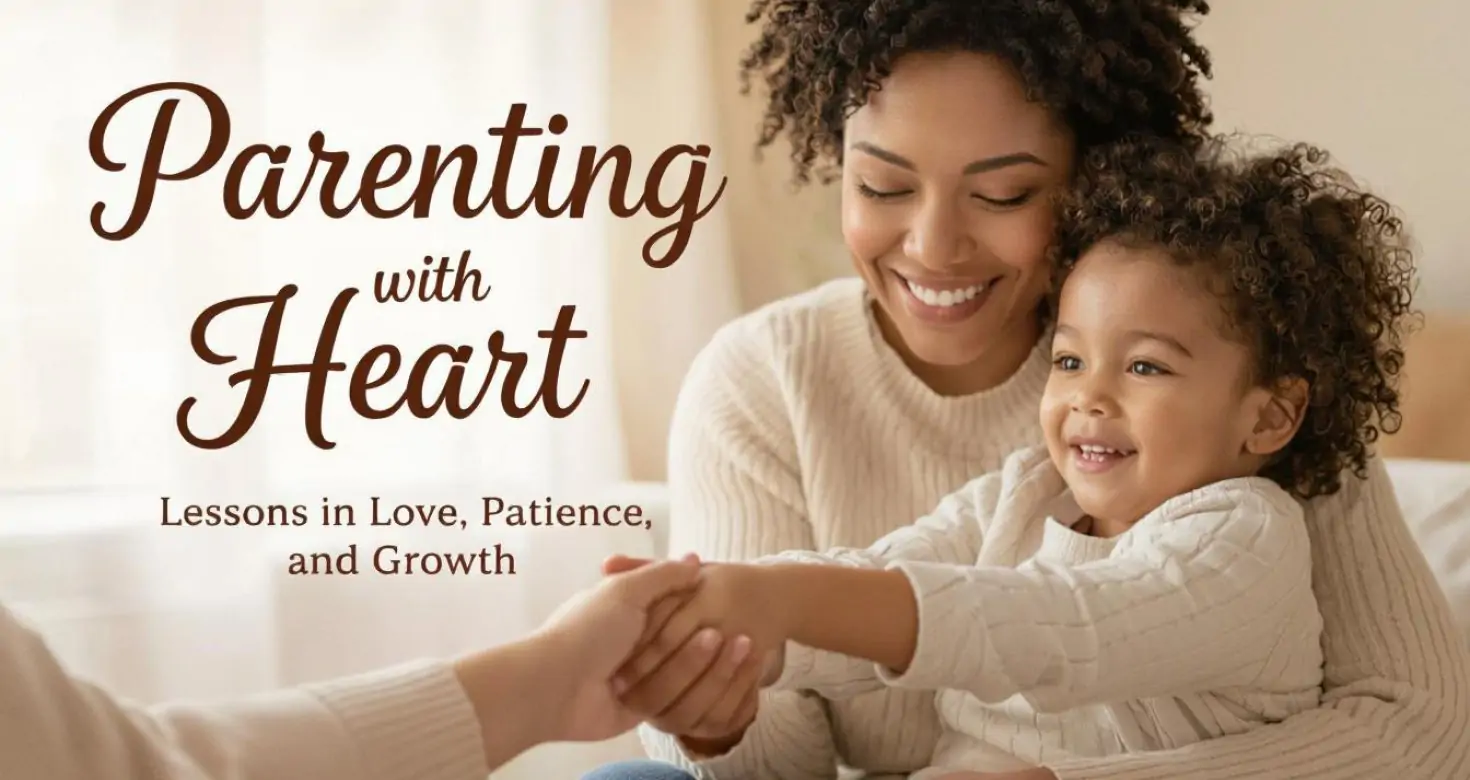Parenting is said to be one of the great journeys of life. It is an adventure of joy and struggle and hundreds of tiny moments that nudge quietly at both children and parents. It’s not just about walking children through simple stages, like a child taking his first steps or beginning school, but providing them with the values and tools that will help them to live successfully. Mastered by these three timeless tenets: love, patience and growth. Together, they set the stage not just for raising kind, resilient kids but also for reminding parents about the beauty of their own growth.
Love
Parenting is the heartbeat of Love. It’s that unwavering, unfailing presence children count on. From the very first moments (… when a parent comforts a crying baby) to everyday family rituals, love is communicated in many ways. Sometimes it’s as easy as a hug after no one got your back in school that day or the shared laughter after playing the most dumb family game. Other times, it’s in the small actions: a parent lingering by way of the classroom door; a note scrawled and folded into a lunchbox; or listening to an interminable story that rambles and disappears without anything resembling a payoff.
Children thrive when love is shown consistently. They learn that they’re valued not for what they achieve, but for who they are. This unconditional acceptance builds self-esteem and encourages empathy, as children begin to mirror the kindness they receive at home. In a world that often measures worth by performance, parental love becomes the sanctuary where children discover that they are enough.
For parents, love is also an act of the will. It is deciding to make a connection even amid life’s chaos, providing motivation in low moments and showing love on bad days. It is the unseen tether that binds the family, creates in children a sense of belonging they will carry long after they are grown.
Patience
If love is the heartbeat of parenting, patience is its steady breath. Share Children grow in their own ways, and parenting involves slowing down long enough to notice — and honor — that. A toddler may make it seem as if putting on shoes will take a lifetime. Teenagers often have trouble being articulate about their feelings. These are not annoyances, but invitations to lead gently rather than in anger.
When parents choose patience, they send a powerful message: mistakes aren’t failures, and learning is a process. A calm response when a child spills a drink teaches them that accidents are part of life. Listening with empathy during a meltdown shows that emotions are valid and can be managed with care. These moments of patience not only soothe children in the present but also equip them with emotional regulation skills they’ll use throughout life.
Patience also nurtures trust. Kids who don’t have to worry about getting scolded for trying and failing are more willing to take risks, experiment with new ideas and stretch their limits. As parents, our patience allows for breathing room that will help our children grow up not just fast, but strong and capable in their own time.
Growth
The most humbling part of being a parent may be acknowledging that growth is mutual. Even as our kids are growing and learning to read, make friends, or make sense of the digital world, parents are doing their own evolving: gleaning new strengths and discovering new perspectives and depths in what it means to apprentice another human into the universe.
Growth occurs in the day-to-day battles: dealing with a tantrum, figuring out how to handle homework struggles or finding balance on how much screen time is acceptable. These are the moments when families learn together. Educating children to be resilient, compassionate and adaptable is not just about discipline or routines. A parent who can demonstrate kindness even under stress, or admit when she is wrong in an argument and model forgiveness — however long it might take to get there — shows a child simply that growth never truly ends.
This is where nurturing Life skills for kids becomes especially important. Skills like communication, problem-solving, and emotional awareness are as vital as academic success. They prepare children for the wider world while reminding parents that raising children isn’t just about milestones but about equipping them for the journey of life. Parenting with growth in mind means embracing the reality that both parent and child are learning, side by side, in an ever-evolving partnership.
Closing Reflection
Each hug, each bit of understanding and success contributes to making a tradition which children can then take forward through life. And for parents, these lessons turn everyday life into something much richer: an opportunity to grow, not just as caregivers, but as humans learning along with their children. Parenting with heart, after all, is parenting with purpose.























